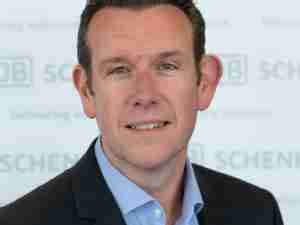Apollo, described by its billionaire chief executive, Leon Black, as a "contrarian, value-oriented investor," plans to convert some 860 million euros ($1.1 billion) of CEVA debt into equity, credit rating agencies said on Tuesday, as it refinances the Netherlands-based company and prepares it for an IPO.
"It is a bold move even by Apollo's standards. They already own the company anyway. But they want to cut the company's debt and they think this will pay off," a banker with knowledge of the deal said on condition of anonymity.
Private equity firms face major challenges in achieving the lucrative exits they are accustomed to from the large, highly leveraged buyouts put together in the go-go days of 2006 to 2008 that were later tested by the economic downturn.
Combined with jittery equity markets, this has led to a backlog of IPOs. Out of 40 LBO companies examined in a Moody's study published in December, only seven had launched IPOs so far, while one was sold directly.
Apollo bought the logistics division of TNT NV, the precursor of Dutch global express company TNT Express, in 2006 for $1.9 billion and renamed it CEVA. In 2007, CEVA bought Houston-based freight management group EGL Inc for $2 billion.
It later bought some of the combined company's debt on private exchanges and the secondary market.
In a regulatory filing last March, Apollo said its invested capital in CEVA, including the EGL deal, was $423 million.
The multiple of its invested capital -- realized proceeds plus any unrealized fair value as of Dec. 31, 2010 divided by original investment amount -- was 1.7 times, according to Apollo.
Debt Burden
CEVA, which employs 50,000 people and has a presence in more than 170 countries, has rebounded from a slump in the logistics market but is still posting net losses and pays dearly to carry the burden of its debt.
Earnings before interest, taxes, depreciation and amortization (EBITDA) were 218 million euros in 2010, up from 164 million euros in 2009. Its net finance expenses soared, however, from 36 million euros in 2009 to 275 million euros in 2010.
Net finance expenses were 197 million euros for the first nine months of 2011 and CEVA's net debt stood at 2.7 billion euros at the end of September 2011, according to the company.
"This refinancing plan will bring their indebtness down from about 8 times EBITDA to 6 times. Then an IPO is realistic, with the proceeds you can cut debt at below 4 times," another banker familiar with the plan said.
CEVA said in a statement on Monday that no assurance can be made as to when or whether it will complete the refinancing transactions.
The refinancing plan also involves issuing $825 million in high-yield bonds currently marketed by Credit Suisse, Deutsche Bank, Goldman Sachs and JP Morgan. Apollo has offered to subscribe to another $140 million of CEVA's notes.
The move is part of Apollo's efforts to boost returns at its Fund VI, which invested in CEVA. Fund VI was generating a 5.4 percent gross and 4.7 percent net annual internal rate of return (IRR) as of Sept. 30, while Apollo's next fund, Fund VII, was generating 23 percent gross and 15 percent net annual IRR, according to Apollo.
In its quarterly earnings report in November, Apollo cited CEVA first among the largest drivers responsible for a 25 percent decrease in the value of investments of Fund VI compared with the previous quarter. (Reuters)









